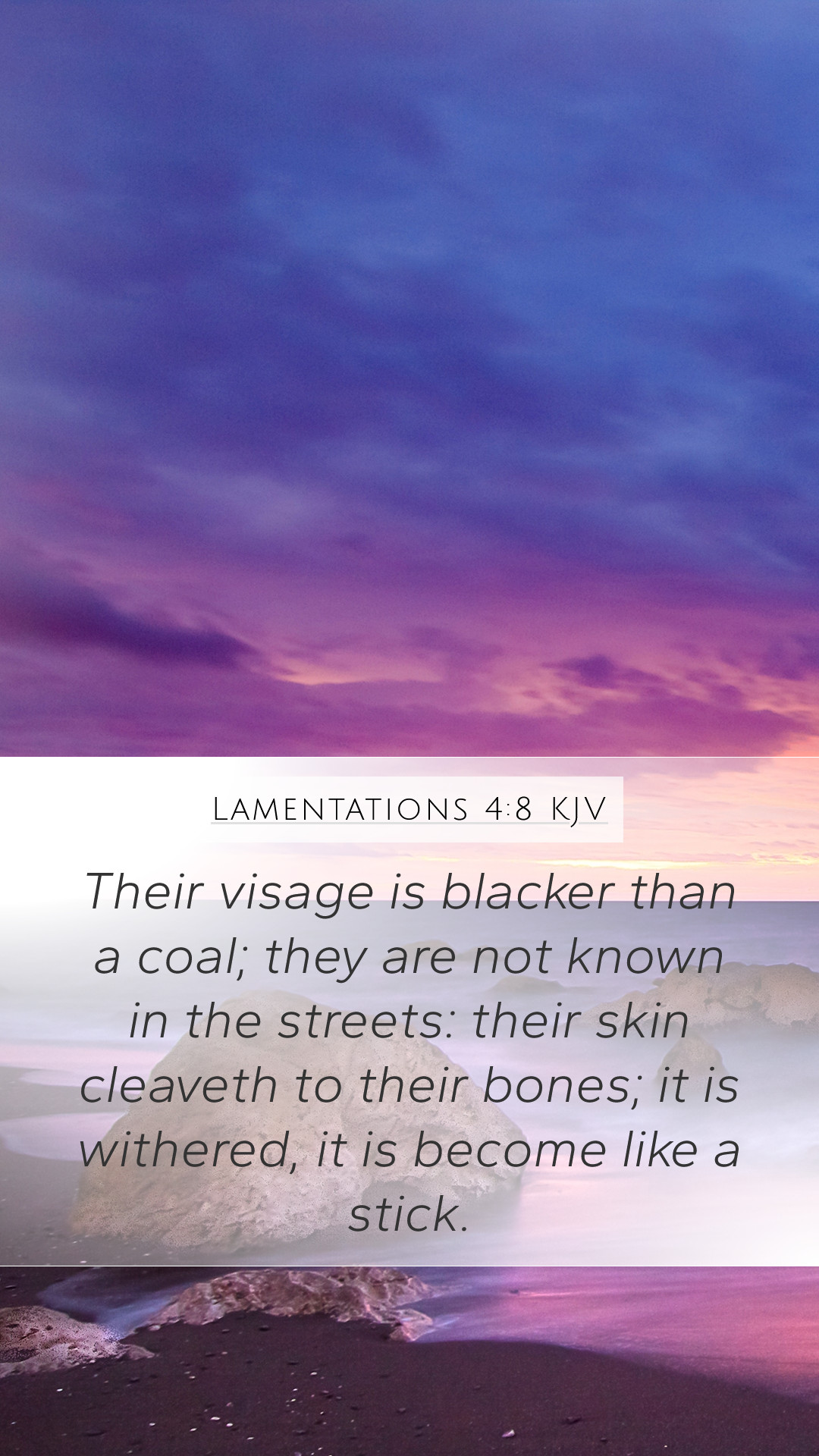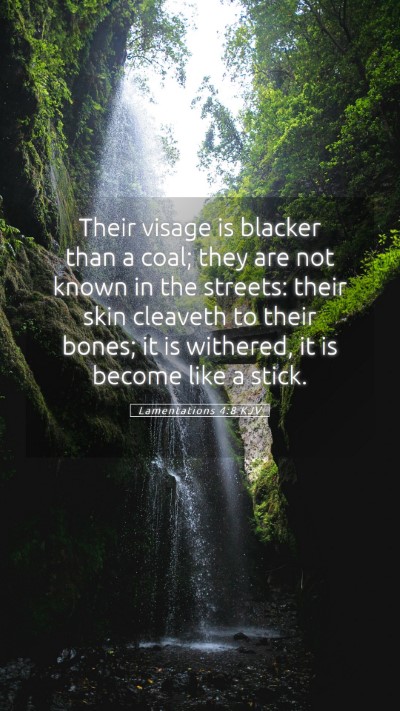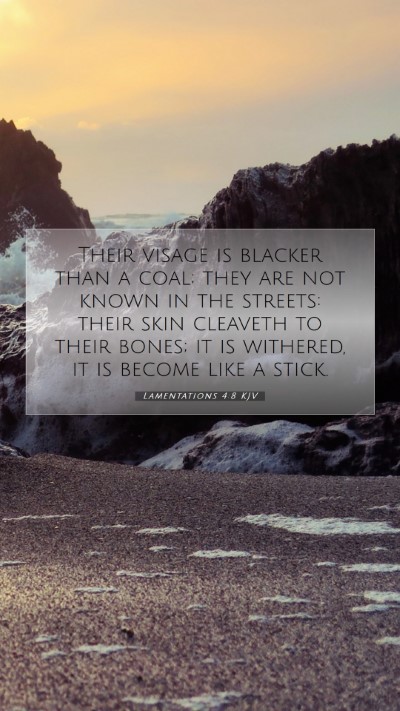Lamentations 4:8 - Bible Verse Meaning and Commentary
Verse Reference: Lamentations 4:8
Verse (KJV): "Their visage is blacker than a coal; they are not known in the streets: their skin cleaveth to their bones; it is withered, it is become like a stick."
Overview of Lamentations 4:8
This verse from the Book of Lamentations captures a profound image of suffering and degradation among the people of Jerusalem following its destruction. It reflects the physical and emotional toll that calamity has taken on individuals who have witnessed devastation and loss. Here, the term "visage" conveys the visual despair and the reduced state of the people.
Detailed Commentary and Interpretations
Matthew Henry's Commentary
Matthew Henry notes that this verse powerfully illustrates the **desperate conditions** of the citizens of Jerusalem after the siege. Their faces, described as "blacker than a coal," indicate a lack of nutrition and overall health, likely a result of starvation and suffering. Henry emphasizes that their previous dignity has been stripped away, leaving them to bear the marks of hardship and distress, reflecting God’s judgment as well as the desperate state of humanity in times of trial.
Albert Barnes' Commentary
Albert Barnes provides insights into the **socio-political context** of the verse. He explains that the physical state of the people not only symbolizes their suffering but also serves as a witness to the state of the nation. In his view, being "not known in the streets" reflects how societal norms dissolve amid calamity—their identities are lost amid the chaos and ruin. This underlines a profound loss of community and collective identity, illustrating the wide-reaching effects of conflict and distress, which serves as a cautionary tale about the consequences of turning away from God's ways.
Adam Clarke's Commentary
Adam Clarke interprets the imagery of **dehydration and emaciation** seen in "their skin cleaveth to their bones." He points out that this serves as a metaphor for spiritual desolation as well, suggesting the emotional and spiritual starvation the people are experiencing in parallel with their physical suffering. Clarke drives home the point that Lamentations highlights the severe consequences of sin and rebellion against God, which leads to both social and individual destruction.
Key Themes and Reflections
- Physical and Spiritual Suffering: The description within Lamentations 4:8 equally mirrors both fleshly hardship and the state of the soul, positing that many people might experience outward suffering reflecting deeper spiritual conditions.
- Identity in Crisis: The phrase "not known in the streets" illustrates how trauma can strip individuals of their identities, leading to anonymity and isolation in a communal context.
- The Consequences of Sin: The imagery conveys God's judgment on sin, evidencing how deviation from divine commandments can lead to communal and national downfall.
Application of the Verse
This verse serves as a sobering reminder for **contemporary readers** about the realities of suffering and the communal impact of moral decay. Reflecting on Lamentations 4:8 inspires a deeper understanding of resilience in adversity and the importance of maintaining a connection to one’s community and faith even amidst trials.
When studying such passages, individuals can appreciate the nuances in **Scripture analysis** and deepen their **Bible verse understanding**, contributing meaningfully to their **Bible study groups** or **online Bible study** platforms.
Connection to Other Scripture
- Jeremiah 14:2: Discusses the mourning of Judah, highlighting similar themes of despair and degradation.
- Psalms 38:3: Reflects on physical anguish parallel to emotional suffering, reinforcing the connection between body and spirit in distress.
- Isaiah 52:14: Offers another prophetic insight into the suffering of a people, emphasizing the impact of sin and judgment.
Conclusion
Lamentations 4:8 is more than a record of despair; it challenges readers to engage with the **meaning of Bible verses** and consider their implications for both personal and communal faith experiences. It underscores the importance of **Bible verse commentary** for comprehension and reflection on the trials one may face when turning away from God’s guidance.


